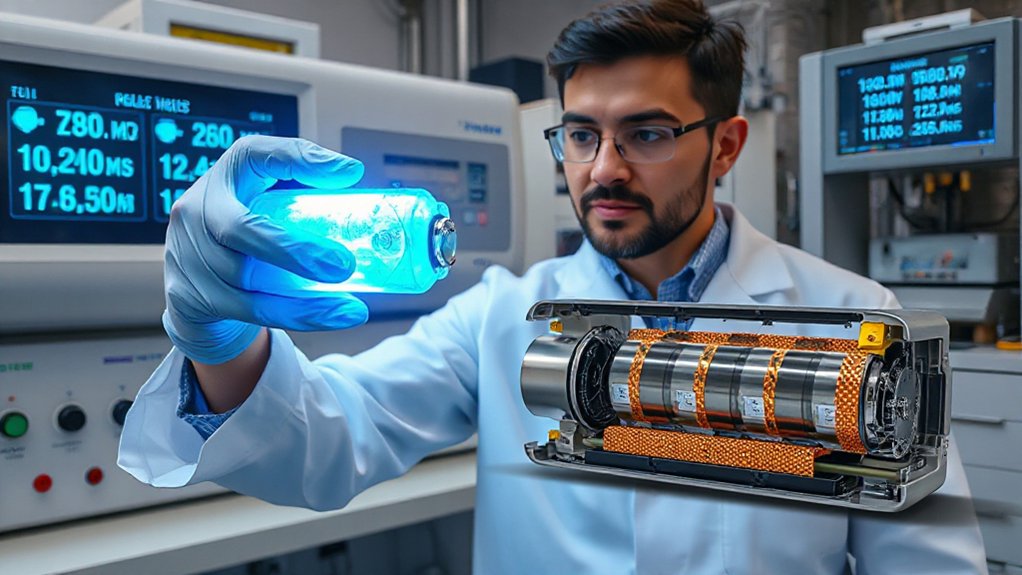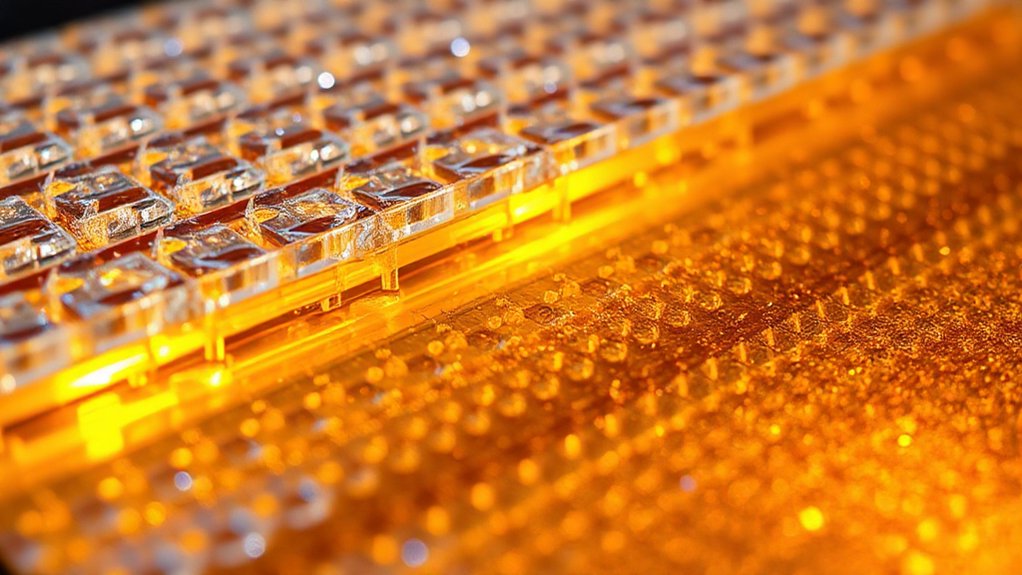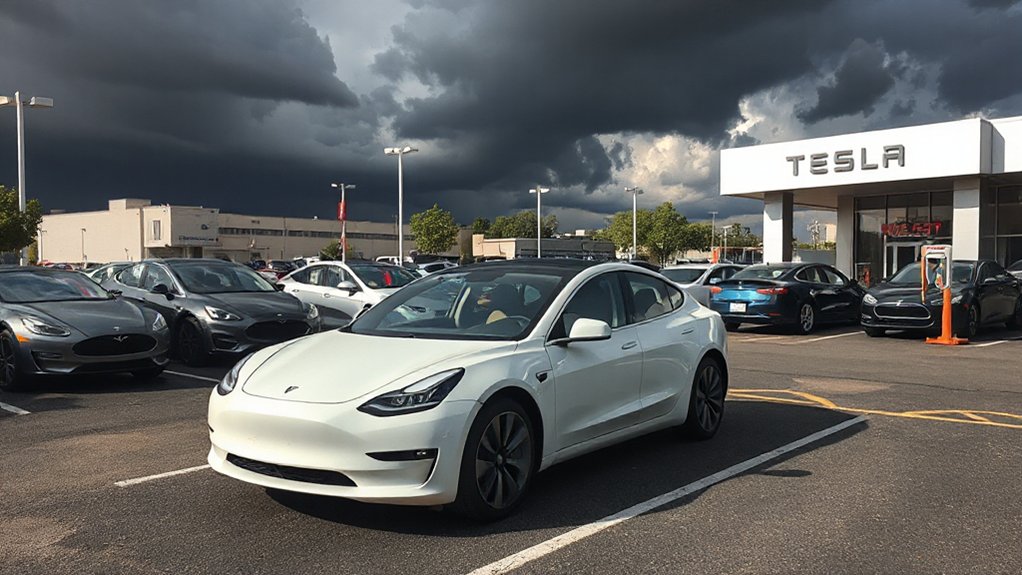While the auto industry has spent decades obsessing over engine horsepower, the real revolution is happening inside EV battery packs. The sleepy world of electrochemistry suddenly matters to everyone who cares about cars. Forget 0-60 times. Battery tech is the new automotive flex.
Lithium-metal batteries are finally solving their biggest problem—those pesky dendrites that grow like metallic weeds. A new “cohesion-inhibiting” electrolyte keeps these battery-killers at bay. The result? Batteries that charge from 5% to 70% in just 12 minutes and last for 185,000 miles. Not too shabby. The breakthrough published in Nature Energy marks a significant milestone for electric vehicle adoption.
All-solid-state batteries are the holy grail everyone’s chasing. They ditch flammable liquids for solid electrolytes, packing 300-500 Wh/kg of energy density. Chinese researchers have already demonstrated batteries capable of powering EVs over 620 miles on a single charge. Toyota, BMW, and Hyundai aren’t far behind, targeting production between 2026-2028.
Solid-state battery tech isn’t just impressive—it’s revolutionary. 500 Wh/kg means 620+ miles per charge, with major automakers racing to production.
Can’t wait for full solid-state? Quasi-solid-state batteries offer a halfway point, blending solid and liquid electrolytes. They’re safer than traditional lithium-ion cells but easier to manufacture than pure solid-state versions. Think of them as the responsible step-sibling of today’s batteries. SAIC MG has already launched the world’s first mass-produced semi-solid-state EV with their MG4 model.
Sodium-ion technology is making waves too, especially in China. They’re cheaper (by half!), use abundant materials, and reportedly last 3.6 million miles. The trade-off is lower energy density, but for mass-market vehicles, who cares?
The wildest frontier? Quantum batteries. Still purely experimental, but they could theoretically charge in seconds using quantum states. Don’t hold your breath, though.
Meanwhile, recycling innovations are closing the loop. Advanced methods recover more materials from dead batteries, reducing the need for mining and cutting costs. NIO’s innovative battery swapping technology, with over 40 million swaps completed globally, addresses battery degradation concerns while eliminating charging wait times.
The battery revolution isn’t coming—it’s already here. And while the average driver might not care about cohesion-inhibiting electrolytes or controlled dephasing, they’ll definitely notice when their EV charges in minutes and lasts for decades.
References
- https://www.livescience.com/technology/electric-vehicles/new-ev-battery-tech-could-power-500-mile-road-trips-on-a-12-minute-charge
- https://electrek.co/2025/10/16/china-advances-all-solid-state-ev-batteries-with-1000-km-range/
- https://www.large-battery.com/blog/electric-vehicles-lithium-battery-advancements-2025/
- https://www.rdworldonline.com/battery-buzz-5-breathroughs-to-watch-in-2025/
- https://www.greencars.com/greencars-101/the-future-of-ev-batteries
- https://www.youtube.com/watch?v=U3Qx9EoW_ek
- https://www.electrive.com/2025/09/09/volkswagens-battery-advances-standard-cell-now-solid-state-technology-soon/









